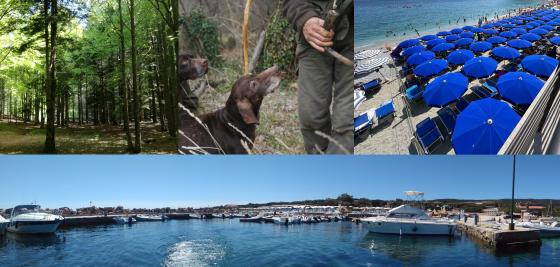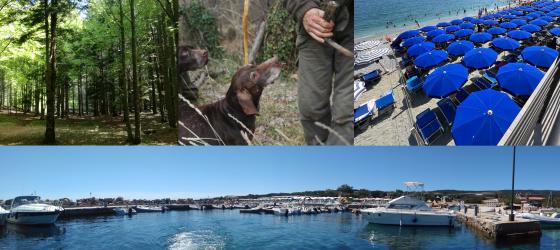Natural capital includes the stock of natural resources (e.g., living organisms, air, water, soil) that helps providing goods and services to humans and that are necessary for the survival of the environment itself. The stock of natural goods generates ecosystem functions and ecosystem services. Functions arise from the interactions among natural capital elements and they represent the potential ability to provide goods and services for humans and other species. Ecosystem services are those functions exploited by humans: our survival on planet Earth is tied to them.
The sustainable exploitation of natural capital stock is vital because it ensures the continuous provision of ecosystem services over time. The most widely used and recent classification of ecosystem services is The Common International Classification of Ecosystem Services (CICES), which identifies three main categories: 1) supply services (i.e, food, drinking water, biotic and abiotic materials used for the production of goods, abiotic and biotic renewable energy sources); 2) maintenance and regulation services (i.e., waste remediation, flow regulation, physical environment and biotic environment); and 3) cultural and social services (i.e., symbolic, intellectual and experiential).
Within this topic, DISTAV researchers are involved in multiple research activities, including:
1. Evaluation of sustainability level of human systems (i.e. territorial, production and management systems) by means of system analysis methodologies (e.g. emergy analysis, ecological footprint, LCA) (C. Paoli, P. Vassallo);
2. Biophysical and monetary assessment of natural capital and ecosystem services of marine and terrestrial habitats, using a donor-side approach through the application of biophysical and economic methods (C. Paoli, P. Povero, P. Vassallo);
3. Sustainability analysis of scenarios and project or management proposals and of their impact on natural capital and ecosystem services (C. Paoli, P. Povero, P. Vassallo);
4. Environmental accounting framework for human systems (C. Paoli, P. Povero, P. Vassallo);
5. Spatial Decision Support System (SDSS) able to combine economic, social and environmental criteria proposing hypotheses for sustainable development (C. Paoli, P. Povero, P. Vassallo)
6. Assessment of ecosystem services of Nature based solutions, with particular reference to the urban environment using some of the most common Key Performance Indicators (e.g. CO2 capture, biodiversity assessment, evapotranspiration rate, etc.) (E. Roccotiello)
7. Assessment of ecosystem services provided by valuable edible fungal species belonging to the genera Tuber (Tartufi) and Boletus (Porcini) in rural areas. These studies are carried out through the collection of data in the field and the elaboration of specific indicators (such as emergy indexes) to obtain essential information for proper management, conservation and valorisation of these important non-wood forest product (S. Di Piazza, C. Paoli, P. Vassallo, M. Zotti).

